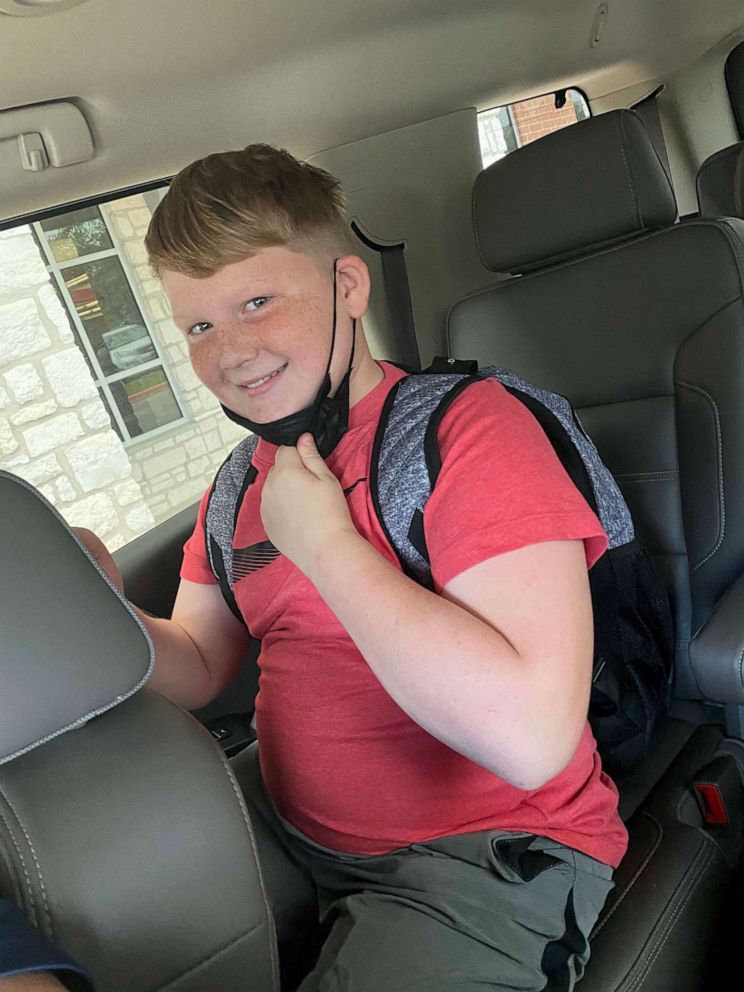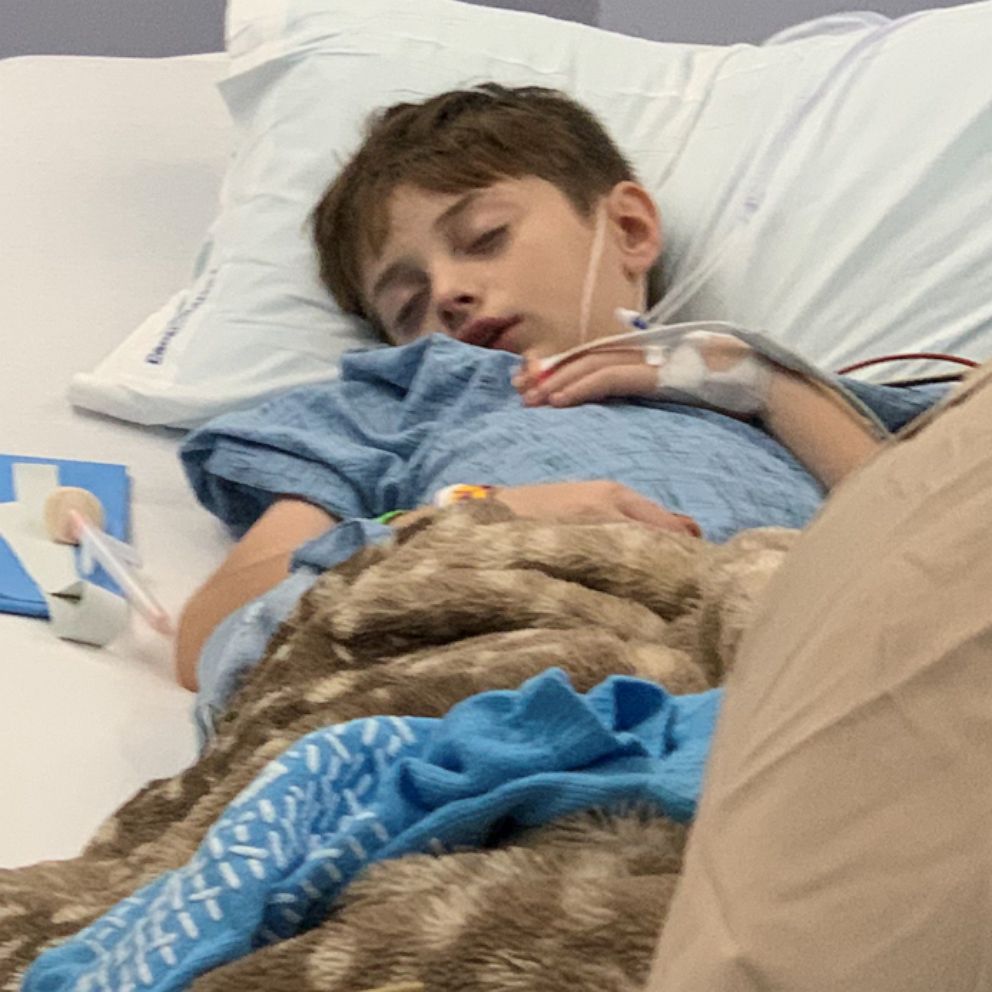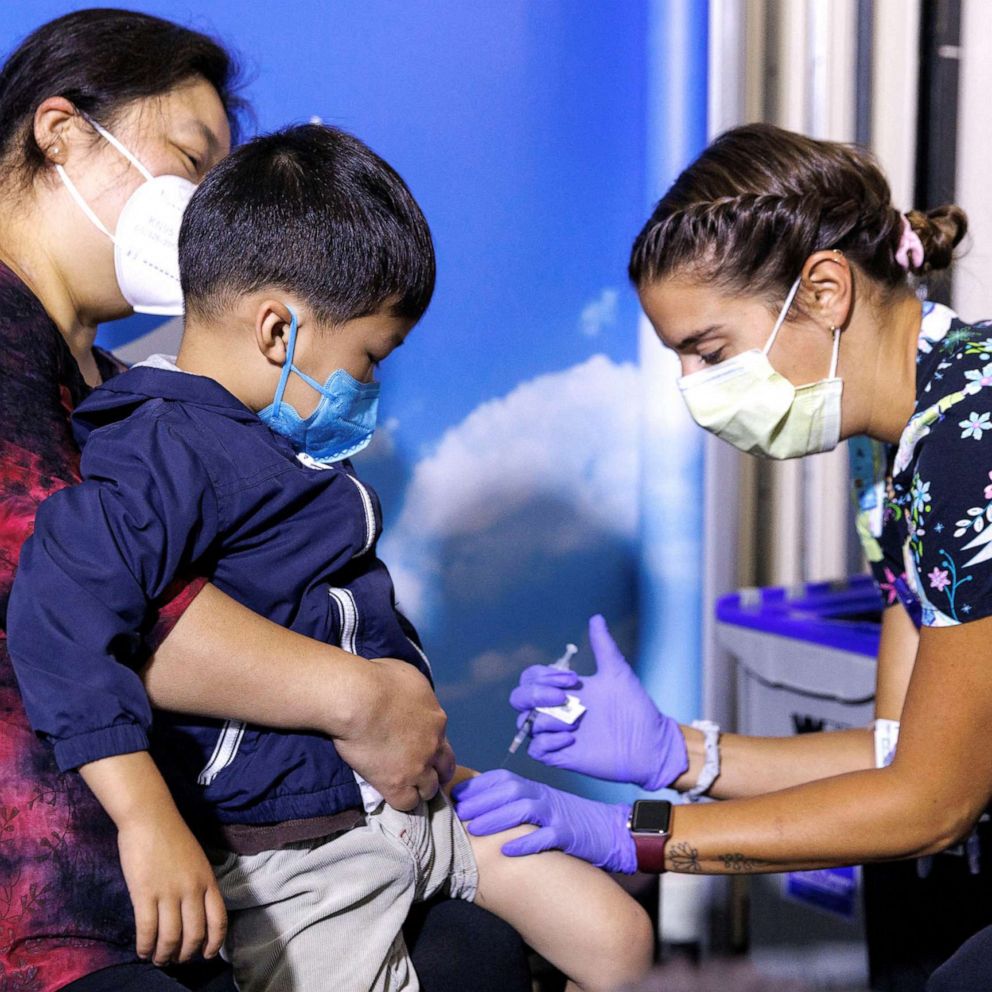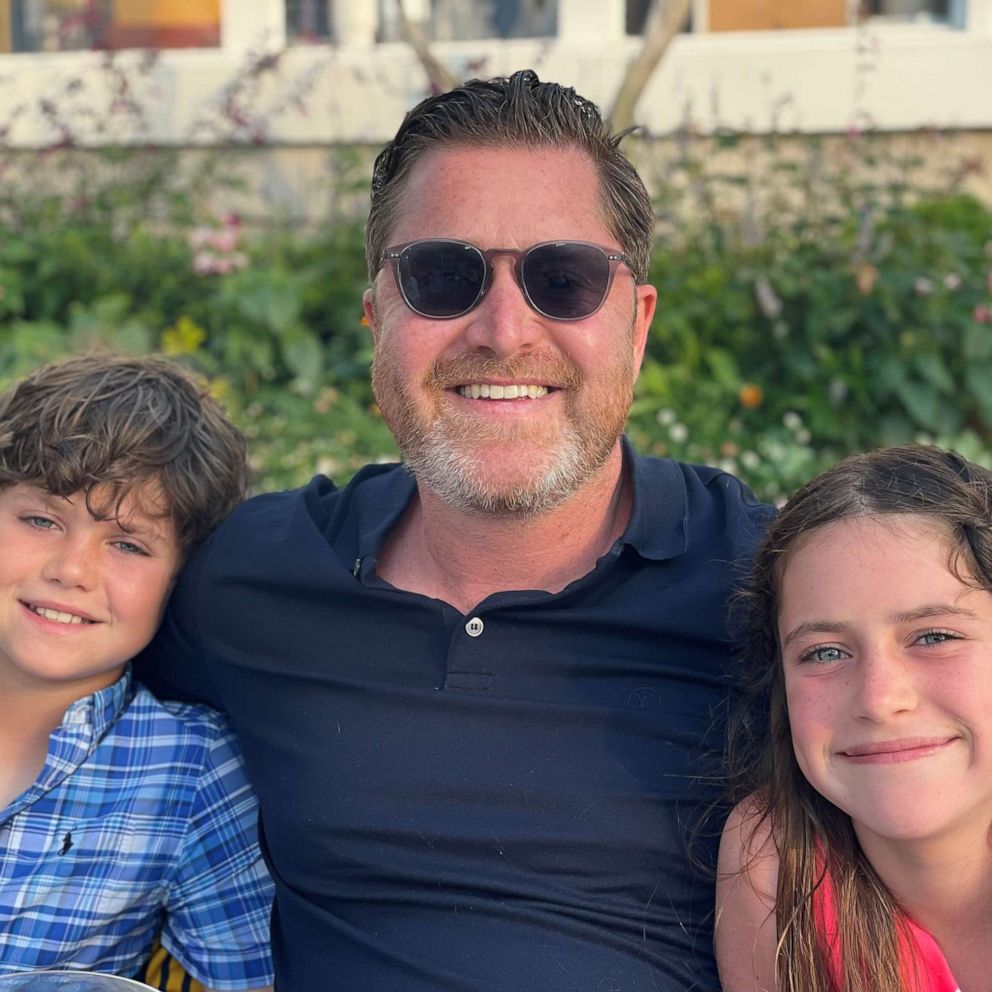As COVID-19 cases in kids surge, a pediatrician shares tips to help parents
Dr. Edith Bracho Sanchez explains why more kids are getting COVID-19.
Levi Quartucci, an 11-year-old from Wimberley, Texas, caught COVID-19 several days after starting back to school in person.
During his battle with the virus, the sixth-grade student, who is too young to be vaccinated, was hospitalized with a high-grade fever and then found to have pneumonia in his lungs, according to his parents, Katie and Joe Quartucci.
Levi, who recovered after four days in the hospital, is part of a spike in pediatric cases of COVID-19 that is happening as millions of students return to classrooms.
In the last week alone, nearly 252,000 children in the U.S. tested positive for COVID-19, marking the largest increase of pediatric cases in a week since the pandemic began, according to a newly released weekly report from the American Academy of Pediatrics and the Children's Hospital Association.
Describing his experience with COVID-19, Levi told "Good Morning America," "I just felt horrible throughout the whole time."

"I would say to take it seriously," Levi's dad, Joe Quartucci, said of COVID-19. "And to really protect yourselves from what can be a really, really dangerous and awful disease."
In addition to the number of kids infected with COVID-19, the rate of pediatric hospital admissions per 100,000 people is also at one of its highest points of the pandemic, up by 600% since the Fourth of July, according to federal data.
Across the U.S., just under 2,400 children are hospitalized with a confirmed or suspected COVID-19 infection.
"The number of children who are hospitalized or who have severe outcomes from COVID-19 remains really small," said Dr. Edith Bracho-Sanchez, a pediatrician at Columbia University. "However, as more and more children get COVID-19, we are going to see more children being hospitalized and more children with severe outcomes."
The rise in kids with COVID-19 has coincided with not only with the return to in-person learning in most schools, but also the easing of lockdown restrictions across the country, as well as stalled vaccination rates among eligible people.
The rise is also happening as the more infectious delta variant spreads across the U.S., and as COVID-19 vaccines remain unavailable for children under the age of 12.
"Until we have more specific data, there is no question that the delta variant is at a minimum more infectious and going for the people who are unvaccinated, which includes children," Bracho-Sanchez said. "The timing of it all is so unfortunate."
As parents worry about their kids' health, they are again facing the same questions of how to best protect both their physical health and mental well-being, weighing everything from play dates to visits with grandparents.
Here are five tips for parents from Bracho-Sanchez:
1. Make sure everyone in your household who is eligible is vaccinated.
"With the rates of infections that we are seeing, if there are unvaccinated adults or teens in your household, go ahead and get that shot," Bracho-Sanchez said.
The Pfizer COVID-19 vaccine was granted full FDA approval for people ages 16 and older in August. It was authorized for use in children ages 12 to 15 by the FDA in May.
The two other COVID-19 vaccines available in the United States, Moderna and Johnson & Johnson, are currently available for anyone 18 years and older in the U.S. Moderna filed for emergency use authorization with the FDA for its vaccine in adolescents in June but is still awaiting a decision.
2. Keep wearing face masks and following safety guidelines.
Kids ages 2 and older should always wear face masks in indoor public settings, according to Bracho-Sanchez.
She noted that parents and siblings who are vaccinated should also continue to wear face masks indoors because of the rates of breakthrough infections in the U.S.
"We know at this point that masks are an incredibly effective tool," Bracho-Sanchez said. "I really think children older than 2 can learn how to wear masks if we model it for them, if we normalize it for them, if we help them through."
Both the Centers for Disease Control and Prevention and the American Academy of Pediatrics recommend that schools embrace universal mask policies.
3. Prioritize what's important to you and your kids.
Throughout the pandemic, families have been forced to make decisions about what activities are safe, from attending family events to joining after-school activities.
Bracho-Sanchez recommends parents reexamine what is important for their family and make decisions accordingly. For example, a priority may be that a child remain in school in-person, in which case all other decisions would be based on making sure it meant the child remains in school.
"It's sort of prioritizing and ranking, knowing that the more contacts we have and the more we are indoors, the higher the risk is," Bracho-Sanchez said. "And try to weigh that with the true benefit that kids could have from participating in some of these activities."
4. Use pods to socialize again.
In the early days of the pandemic, "quarantine pods" became a way for families and friends to stay social while staying as safe as possible with people who were following similar COVID-19 protocols.
Bracho-Sanchez recommends taking a similar approach now given the high rates of COVID-19 cases among kids.
"The truth is right now I would probably not get together with a family who's been indoor dining and going to large events," she said. "Personally, I would get together outdoors with friends and neighbors who I know have been keeping similar measures in place and some restrictions in place."
Bracho-Sanchez said it is also OK to ask the vaccination status of people who are around your child, whether it be a caregiver, a sports coach or the parents of a friend who have invited your child for a play date.
5. Make sure to get a flu shot.
After a summer that saw an unexpected surge in RSV (respiratory syncytial virus), a respiratory virus that can be dangerous to young children, Bracho-Sanchez said parents should pay attention to the upcoming flu season and make sure their child gets a flu shot.
"I'm concerned about the unpredictability of it all," she said. "I just want every family to take the reasonable precautions that they are able to take, and that includes a flu shot."







